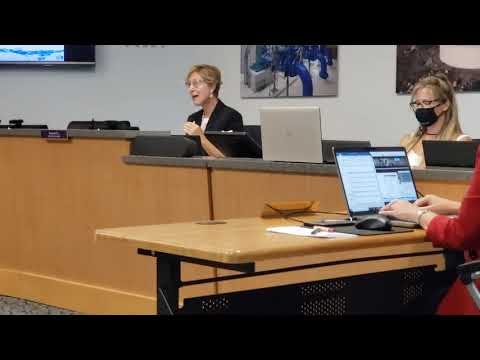Padre Dam Squeezes Overdue Ratepayers
Misinterpretation of California tax law justifies late fees, water shut-offs, and property liens after Gov. Newsom's moratorium expires
Padre Dam Municipal Water District’s crackdown on past-due ratepayers at the tail end of a state imposed moratorium on water shut-offs led to a dust-up at its July 21 public board meeting.
Gov. Newsom imposed the moratorium in April 2020 to help ratepayers endure financial hardships during the COVID-19 pandemic. But his order (N-42-20) expires on Sept. 31, after which the ratepayers still must pay up.
The surface issue was whether the PWD should continue with a moratorium of its own on late fees (not included in the Governor’s order) and collections for two more months pending expected state aid for past-due water ratepayers, or not.
PWD board member Suzanne Till wanted to spare those ratepayers and their children from possible financial stress and dehydration during August and September, the hottest months of the year.
But the PWD’s four-member board majority voted on the 7th and 21st of July to reinstate late fees on Aug. 1, water shut-off notices on Oct. 1st, and immediately certify property liens for 63 parcels with back-debt totaling $282,038.72.
The PWD provides high-priced water to 100,000 residents of East San Diego County, including 23,000 who are ratepayers. About 380 of them meet criteria for shut-offs under the District’s rules, according to Karen Jassoy, Finance Director.
Currently, the group’s collective debt comes to $525,000, of which $300,000 belongs to 20 accounts; one of them, a farm property, owes over $190,000.
PWD collected $746,000 annually in late fees from 2015-2019, according to General Manager Allen Carlisle. He estimates an average monthly loss to PWD in late-fee revenue of $63,667 for 17 (pandemic) months, or $1 million.
Add the half-million owed by the 380 shut-off eligible ratepayers and the total “loss” comes to $1.5 million.
More important, Jossay explained, is to provide an incentive for ratepayers to pay up before the winter holidays.
But her greatest concern with delaying bill collections is compliance with California’s 1996 tax-reform law, Proposition 218, which requires taxes and fees to be in line with the actual cost of government services.
“[Debt] forgiveness is more like a subsidy that passes costs onto other customers,” she told the board.
PWD legal counsel Paula de Sousa told the SCV that Prop 218 “means that one customer or group of customers cannot be required to pay more than their cost of service in order to subsidize the cost of providing service to any other customer.”
But Sousa didn’t say that a two-month collection extension like Till proposed would violate Prop 218—because it won’t.
Michael Colantuono, a leading tax-law attorney, who wrote Prop 218 compliance guidelines for cities, told the SCV by phone that the law doesn’t preclude bill-payment extensions—as long as the debt is to be repaid.
“Every [govt] agency has to deal with the cost of slow payers,” he said, “That is the cost of doing business.”
Late fees are a separate issue, Colantuono said, and the District is not obligated to collect them.
But Jassoy’s Prop 218 interpretation became the raison d'être for the board majority in its preemptive strike against Till’s preferred approach.
“I don’t love every law,” said Director Bill Pommering, “But it [Prop 218] is the law. And when I took the oath, I had to swear to uphold the laws of the State of California.”
Director James Peasley, referring to Till, said she’s “asking the board and the normal ratepayers, meaning those who pay their bills, to pick up the tab and increase their rates.”
Till asked how much rates would increase if the board waited until October to collect, noting that 39 of the past-due ratepayers owed only $800 or less.
“I am concerned that [these] families will worry about water and not get access to the water in this time of heat,” she said. “And we are currently heading into another heatwave. And so, that’s where I’m at.”



